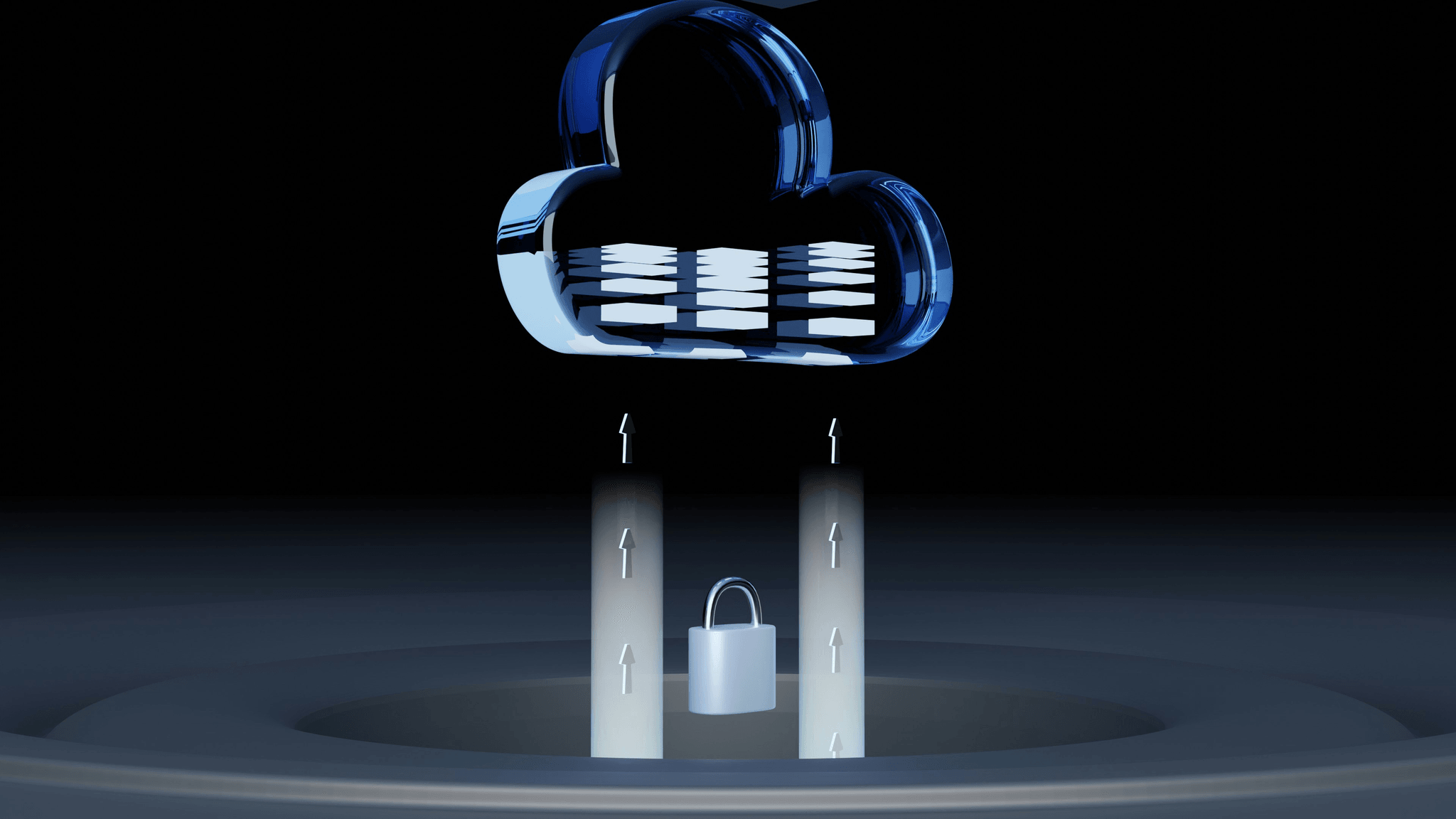Strengthen Your Website's Defenses: 9 Essential Web Security Tips
Strengthen Your Website's Defenses: 9 Essential Web Security Tips

In today's digital age, web security has become more crucial than ever. With the increasing threat of cyber attacks, it's essential to understand the basics of cyber security and web application security to protect your online presence. Web security encompasses various measures and practices to safeguard websites and web applications from unauthorized access, data breaches, and other potential threats.
Importance of Web Security
The importance of web security cannot be overstated in a world where online threats are constantly evolving. Individuals and businesses alike must prioritize web security to ensure the safety and integrity of their digital assets.
What is Web Security
What is web application security? It refers to protecting internet-connected systems, including hardware, software, and data, from cyber threats. This includes safeguarding against unauthorized access, data breaches, theft of sensitive information, and other malicious activities carried out by cybercriminals.
The Basics of Web Application Security
Web application security protects web applications from potential security risks such as data breaches, unauthorized access, cross-site scripting (XSS) attacks, SQL injection attacks, and more. It involves implementing various measures to mitigate these risks and ensure web applications' overall safety and reliability.
1. Update Your Software Regularly

One of the most crucial practices in web security is regularly updating your software. This involves keeping your operating system, web browser, and other applications up to date with the latest patches and security updates. Failure to do so can leave your system vulnerable to cyber attacks and compromise the overall security of your website.
Importance of Software Updates
Regular software updates are essential for maintaining web security. These updates often include fixes for known vulnerabilities that hackers can exploit to gain unauthorized access to your system. By staying current with software updates, you can effectively shield your website from potential threats and ensure a safer online experience for both you and your users.
How Outdated Software Can Lead to Vulnerabilities
Outdated software is a prime target for cyber criminals seeking to exploit known vulnerabilities. When software is not regularly updated, it becomes more susceptible to security breaches and data leaks. Hackers can easily take advantage of these weaknesses, compromising the integrity of your website and putting sensitive information at risk.
Best Practices for Keeping Software Up to Date
To maintain optimal web security, it's important to establish best practices for keeping all software up to date. This involves enabling automatic updates whenever possible, regularly checking for new patches and releases, and promptly installing any available updates as soon as they become available. By staying proactive in this regard, you can significantly reduce the likelihood of falling victim to cyber attacks due to outdated software.
2. Implement Strong Password Practices

Strikingly Login Page
When it comes to web security, implementing strong password practices is crucial in protecting your sensitive information from cyber threats. Weak passwords are a major risk factor for security breaches, as hackers can easily guess or crack them. Consider combining uppercase and lowercase letters, numbers, and special characters to create and manage strong passwords. Additionally, enabling two-factor authentication adds an extra layer of security by requiring users to provide a second verification form before accessing their accounts.
The Risks of Weak Passwords
Weak passwords pose a significant threat to web security as cyber attackers can easily exploit them. Using common words or phrases, sequential numbers, or personal information as passwords makes it easier for hackers to guess or crack them using automated tools. This can lead to unauthorized access to sensitive data, financial theft, and even identity theft. Individuals and organizations need to understand the risks associated with weak passwords and take proactive measures to strengthen their password practices.
How to Create and Manage Strong Passwords
To create and manage strong passwords, consider using a passphrase that combines unrelated words, numbers, and special characters. Avoid using easily guessable information such as birthdates, pet names, or simple dictionary words. Utilize password management tools that generate complex passwords and securely store them for easy access across devices. Regularly updating passwords and avoiding reuse across multiple accounts are also essential best practices for maintaining strong password security.
The Role of Two-Factor Authentication in Enhancing Security
Two-factor authentication (2FA) plays a vital role in enhancing web security by adding an additional layer of protection beyond just a password. By requiring users to provide a second form of verification such as a unique code sent to their mobile device or email address, 2FA significantly reduces the risk of unauthorized access even if the password is compromised. Implementing 2FA across all user accounts within an organization helps mitigate the impact of potential security breaches while enhancing overall cybersecurity posture.
3. Secure Your Network

In the world of web security, securing your network is crucial to protecting your website from cyber threats. Unsecured networks can leave your data vulnerable to hackers and malicious attacks, compromising the integrity of your website and putting your users at risk.
The Impact of Unsecured Networks
Unsecured networks can be an open invitation for cybercriminals to intercept sensitive data transmitted over the network. This can lead to unauthorized access to confidential information, such as user credentials and financial details, putting both your business and your customers in jeopardy.
Tips for Securing Your Wi-Fi Network
To secure your Wi-Fi network, start by changing the default administrator password on your router and enabling WPA2 encryption for a more secure connection. Additionally, regularly update your router's firmware to patch any vulnerabilities that hackers could exploit.
The Benefits of Virtual Private Networks (VPNs)
Virtual Private Networks (VPNs) offer an added layer of security by encrypting all data transmitted between your device and the VPN server. This ensures that even if someone were to intercept the data, it would be indecipherable without the encryption key.
By implementing these tips and leveraging VPN technology, you can significantly enhance the security of your network and protect your website from potential threats. Remember, a strong defense starts with a secure network!
4. Use SSL Encryption

Strikingly Free SSL
In today's digital age, web security is of utmost importance. One crucial aspect of web security is SSL encryption, which stands for Secure Sockets Layer. SSL encryption ensures that the data exchanged between a user's browser and a website remains private and secure.
The Significance of SSL Encryption
SSL encryption is vital in safeguarding sensitive information such as login credentials, personal details, and financial data from being intercepted by cybercriminals. It creates a secure connection between the user's browser and the website, preventing unauthorized access to the transmitted data.
How to Implement SSL on Your Website
Implementing SSL on your website involves obtaining an SSL certificate from a trusted Certificate Authority (CA) and installing it on your web server. Once installed, your website will use HTTPS instead of HTTP, indicating that it is secured with SSL encryption.
The Role of SSL in Building Trust with Users
SSL encryption protects sensitive information and helps build trust with users. When visitors see the padlock icon and HTTPS in their browser's address bar, they are more likely to feel confident about sharing their personal information or making transactions on your website.
5. Regularly Backup Your Data

In the world of web security, data backups are a crucial component of a robust defense strategy. Regularly backing up your data ensures that you have copies of your important information in case of a security breach or data loss. This practice provides peace of mind and serves as a safety net for your website's critical assets.
The Importance of Data Backups
Data backups are essentially like insurance for your website. They act as a safety net, allowing you to restore your website to a previous state in the event of a cyber attack or accidental data loss. Without regular backups, you risk losing valuable information and compromising the integrity and functionality of your website.
Strategies for Effectively Backing Up Your Data
To effectively back up your data, consider using automated backup solutions that can regularly and securely store copies of your website's files and databases in an off-site location. Additionally, it's important to verify the integrity of your backups regularly to ensure that they can be relied upon when needed.
How Backups Can Minimize the Impact of Security Breaches
In the unfortunate event of a security breach, having recent backups can significantly minimize the impact on your website and business operations. With proper backups in place, you can quickly restore your website to its pre-breach state, reducing downtime and potential data loss.
6. Educate Your Team

It's crucial to invest in employee training to bolster web security. By educating your team on the importance of web security, you can empower them to become proactive defenders against cyber threats. Through comprehensive training, your staff can learn how to identify potential vulnerabilities and take appropriate measures to mitigate risks.
The Role of Employee Training in Web Security
Employee training plays a pivotal role in strengthening web security within an organization. By providing your team with the necessary knowledge and skills, you can create a workforce that is equipped to handle potential security threats. Training sessions can cover topics such as identifying phishing attempts, recognizing suspicious website behavior, and understanding the importance of regular software updates.
Key Topics to Cover in Security Training
When conducting security training for your team, it's important to cover key topics that are essential for enhancing web security. These topics may include password best practices, the significance of SSL encryption, the role of web application firewalls in protecting against common attacks, and the impact of unsecured networks on overall security. By addressing these areas, you can ensure that your team has a well-rounded understanding of web security principles.
Creating a Culture of Security Awareness Within Your Organization
To truly fortify your web security defenses, fostering a culture of security awareness within your organization is essential. This involves instilling a mindset where every employee takes responsibility for upholding strong security practices. Encouraging open communication about potential threats and promoting a sense of collective vigilance can significantly contribute to creating a secure environment for your website and digital assets.
7. Employ Web Application Firewalls
Web security is a critical concern for website owners, and web application firewalls (WAFs) play a key role in protecting against common cyber attacks. WAFs are designed to monitor, filter, and block malicious HTTP traffic to ensure the security of web applications. By analyzing incoming traffic and filtering out potential threats, WAFs act as a shield for your website, safeguarding it from various online vulnerabilities.
The Functionality of Web Application Firewalls
Web application firewalls work by examining every HTTP request and response that comes into your web server. They analyze the data for any signs of suspicious activity or known attack patterns, such as SQL injection or cross-site scripting. When a potential threat is detected, the WAF can either block the request or allow it through after removing any harmful content. This proactive approach helps prevent unauthorized access and protects sensitive data from falling into the wrong hands.
How WAFs Protect Against Common Attacks
WAFs protect a wide range of common cyber attacks that target web applications. These include but are not limited to DDoS attacks, botnets, and zero-day exploits. By continuously monitoring and filtering incoming traffic, WAFs can identify and mitigate these threats before they have a chance to compromise your website's security. This proactive defense mechanism significantly reduces the risk of successful cyber attacks on your web applications.
Selecting the Right WAF for Your Website
When choosing a web application firewall for your website, consider factors such as ease of implementation, performance impact on your site's speed, and compatibility with your existing infrastructure. Look for a WAF solution that offers comprehensive protection without hindering user experience or causing unnecessary disruptions to legitimate traffic. Additionally, ensure that the WAF you select is capable of adapting to evolving cyber threats and provides regular updates to maintain its effectiveness.
8. Monitor and Respond to Security Threats
As the digital landscape continues to evolve, the importance of proactive monitoring for web security cannot be overstated. By actively monitoring your website for potential threats, you can identify and address vulnerabilities before cybercriminals exploit them. This involves regularly scanning your systems for any signs of unauthorized access or suspicious activities, ensuring that your web security measures are always one step ahead of potential threats.
The Importance of Proactive Monitoring
Proactive monitoring is crucial for maintaining the integrity of your web security. You can stay one step ahead of cyber threats by constantly monitoring your website and network for any signs of unusual activity or potential vulnerabilities. This allows you to take immediate action to address any issues before they escalate into major security breaches, safeguarding both your data and the trust of your users.
Effective Strategies for Detecting and Responding to Security Threats
Implementing robust cybersecurity tools and practices is essential for effectively detecting and responding to security threats. Utilizing intrusion detection systems (IDS) and intrusion prevention systems (IPS) can help identify and block potential threats in real time. Additionally, establishing a clear incident response plan that outlines specific steps to take in the event of a security breach can ensure a swift and coordinated response to mitigate any potential damage.
The Role of Incident Response Plans
Having a well-defined incident response plan is critical for minimizing the impact of security breaches on your website. This plan should include detailed procedures for identifying, containing, eradicating, and recovering from security incidents. It should also outline the roles and responsibilities of key personnel during a security incident, ensuring a coordinated effort in responding to any threats that may arise.
By proactively monitoring your website's security status, implementing effective strategies for threat detection and response, as well as having an incident response plan in place, you can significantly enhance the overall web security posture of your online presence.
9. Leverage Strikingly Features for Enhanced Web Security

Strikingly Landing Page
In today's digital age, web security is of utmost importance. With the increasing number of cyber threats, it's crucial to understand what web security is and how it can be enhanced. One key aspect of web security is web application security, which focuses on protecting websites and web applications from various vulnerabilities and attacks.
Strikingly’s Built-In Security Measures
When it comes to web security, Strikingly offers built-in security measures that help safeguard your website. From SSL encryption to DDoS protection, Strikingly ensures that your website is equipped with the necessary tools to defend against potential threats. With regular security updates and monitoring, Strikingly provides a secure platform for your online presence.
How Strikingly Helps Safeguard Your Website
In today's digital landscape, website security is of paramount importance. A compromised website can result in significant financial losses, reputational damage, and erosion of customer trust. Strikingly recognizes this and has implemented several measures to protect your online presence.
Strikingly’s Security Measures
- HTTPS Encryption. Strikingly automatically provides HTTPS for all users with a custom domain. This ensures that data transmitted between your website and visitors is encrypted, safeguarding sensitive information from prying eyes.
- Website Analytics. Strikingly offers built-in website analytics to help you monitor your site's performance and identify any unusual activity that might indicate a potential security breach.
- Website Backups. To protect your website from data loss or cyberattacks, Strikingly allows you to create regular website backups. This enables you to restore your site to a previous state if necessary.
- Password Protection. Strikingly prioritizes password security by offering robust password protection features. By setting strong, unique passwords and enabling two-factor authentication, you can significantly enhance your account and website security.
- Continuous Monitoring. Strikingly actively monitors its platform for vulnerabilities and implements security updates to protect against emerging threats. This proactive approach helps maintain a secure environment for your website.
- Security Resources. Strikingly provides valuable resources and guidance to help website owners strengthen their overall security posture. Their blog and support materials offer practical tips and best practices for website protection.
By leveraging Strikingly's security features and following these steps, you can significantly enhance your website's protection against cyber threats. Remember, while Strikingly provides robust security measures, it's essential to maintain vigilance and adopt additional security practices to safeguard your online presence.
Leveraging Strikingly's Web Application Security Features
In addition to its built-in security measures, Strikingly offers web application security features that further enhance the protection of your website. With features like firewall protection and real-time threat detection, Strikingly ensures that your website is equipped to handle potential security risks effectively. By leveraging these advanced security features, you can rest assured that your website is well-protected against cyber threats.
Empower Your Website with Strong Cyber Security

Strikingly Password Protection
In a world where cyber threats are constantly evolving, it's crucial to strengthen your website's defenses. By implementing the best web security practices, you can safeguard your online presence and protect your users from potential risks.
Taking Action to Strengthen Your Website's Defenses
By staying informed about the latest web security trends and continuously updating your website's defenses, you can effectively mitigate the risks of cyber attacks. Regularly monitoring and responding to security threats will ensure that your website remains resilient in the face of potential vulnerabilities.
Enhancing Your Web Security Knowledge
Understanding the fundamentals of web security, including cyber security and web application security, is essential for anyone with an online presence. Educating yourself about these concepts will empower you to make informed decisions about protecting your website and its users.
You can empower your website with strong cyber security measures by leveraging the right tools and features, such as those offered by Strikingly. From SSL encryption to web application firewalls, there are various ways to enhance your website's defenses and build trust with your audience.
